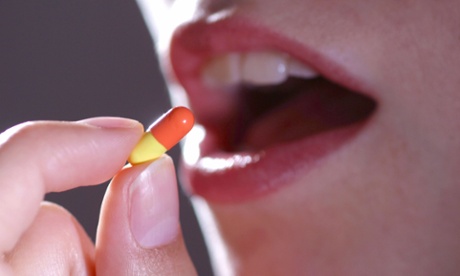
Is it really sexist to want to protect women from harm? For the last few years, some women groups have been lambasting the US Food and Drug Administration (FDA) because it has so far refused to approve Flibanserin, the so-called “pink Viagra” for women’s sexual problems. Campaigns like “EventheScore” and “WomenDeserve” say the regulator has rejected the drug in the past because of alleged gender bias. But where is the fault in wanting to protect women from potential side effects from an at-best marginally effective drug treatment?
On Thursday, two key FDA advisory committees voted to recommend that the watchdog approve Flibanserin, a drug designed to treat hypoactive sexual desire disorder. While the FDA is scheduled to make a final decision in August, this recent news is already being called a “historic decision” by EventheScore – but it is no such thing.
Despite its moniker, Flibanserin is nothing like Viagra. It must be taken every day, potentially for years, rather than, as with Viagra, just when a person wants to have sex. Flibanserin is more similar to antidepressants, with effects that don’t kick in for weeks. Its aim is to treat low desire, but there is no biological marker or threshold for abnormally low desire. What might feel low for one woman could be normal for another. EventheScore claims: “a biological lack of desire to have sex negatively impacts 1 in 10 American women”. This is pure fiction.
To be diagnosed with “hypoactive sexual desire disorder”(or what is now called “female sexual interest/arousal disorder”, in the latest manual of psychiatric diagnoses), a person needs to report “significant distress”, but this overlooks the fact that desire for sex is intricately bound into a person’s life and relationships. If a woman is depressed, is going through tough times with her aging parents or has just had a baby and is sleep-deprived, she can easily feel less interested in sex than previously. If her partner is unsympathetic or pressures her, distress would be expected. Defining unequal interest in sex between partners as a female dysfunction is hardly a boon for women’s equality.
Thus far, the FDA has twice refused to approve Flibanserin because of its lack of effectiveness, frequent side effects and long-term safety concerns. There is nothing sexist about such judgments. The FDA requires evidence of effectiveness and safety as a condition for all of its drug approvals. This is a health protection measure. Setting a lower standard for women is not a pro-woman stance.
To give a sense of the effectiveness of the drug in clinical trials, on average, the women taking the drug had 0.8 more “satisfying sexual events” per month than women on placebo. The sex lives of women on Flibanserin and on the placebo both improved – in fact, the enduring effectiveness of the placebo in these trials was one of the most remarkable results. Women on Flibanserin were more likely to experience dizziness, sleepiness, nausea, fatigue and insomnia, and withdrew early from the trials more often, mainly because of these side effects.
The other downside is that the drug’s concentration increases if a woman drinks, is on an oral contraceptive or takes any of a number of commonly used medicines including treatment for vaginal fungal infections, migraine and depression. Sedation, fainting, dizziness and nausea are likely to be worse, and injuries and next-day driving impairment are a concern. With Flibanserin, the romantic meal with a glass or two of wine before sex is likely to be sickening, and may be dangerous. This seems like a deal-breaker in a drug designed for pre-menopausal women.
Despite its strong links to the drug’s manufacturer, EventheScore’s pro-Flibanserin campaign has gained considerable momentum, with 15 members of the US Congress petitioning the FDA to reconsider the drug. They seem to have been persuaded by EventheScore’s erroneous but catchy argument that there are 26 drugs for men’s sexual dysfunctions, and none for women, and that approving Flibanserin would be a step towards equitable access to health care for women. In fact, only 8 drugs are approved for erectile dysfunction; all the rest on EventheScore’s own list have not been approved for men’s sexual dysfunctions (though many are used off label - for women as well as men).
To claim that concerns about the drug are motivated by sexism is disingenuous and risks harming the very people groups like EventheScore say they want to defend: women. Decisions about women’s bodies and desire are too often accompanied by the blatant politicization of science and medicine. Such politicization has no place in lowering the bar for the effective and safety evidence needed to get a new medicine to market.

